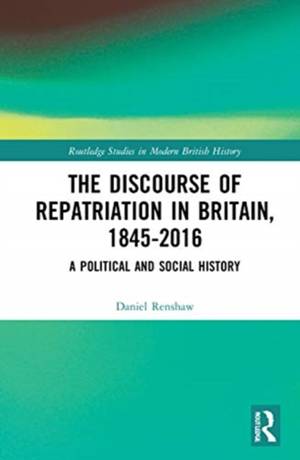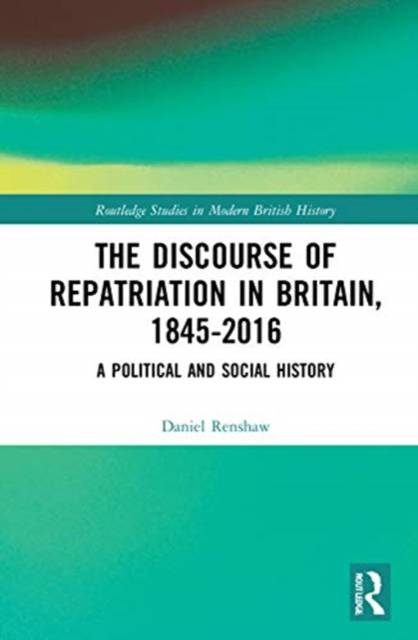
- Retrait gratuit dans votre magasin Club
- 7.000.000 titres dans notre catalogue
- Payer en toute sécurité
- Toujours un magasin près de chez vous
- Retrait gratuit dans votre magasin Club
- 7.000.000 titres dans notre catalogue
- Payer en toute sécurité
- Toujours un magasin près de chez vous
Description
Examining responses to migration and settlement in Britain from the Irish Famine up to Brexit, The Discourse of Repatriation looks at how concepts of removal evolved in this period, and the varied protagonists who have articulated these ideas in different contexts.
Analysing the relationship between discourse and action, Renshaw explores how ideas and language originating on the peripheries of debate on migration and belonging can permeate the mainstream and transform both discussion and policy. The book sheds light both on how the migrant 'other' has been viewed in Britain, historically and contemporaneously, and more broadly how the relationship between state, press, and populace has developed from the early Victorian period onwards. It identifies key junctures where the concept of the removal of 'othered' groups has crossed over from the rhetorical to the actual, and considers why this was the case. Based on extensive original archival research, the book reassesses modern British history through the lens of the most polarised attitudes to immigration and demographic change.
This book will be of use to readers with an interest in migration, diaspora, the development of populism and political extremes, and more broadly the history of modern Britain.
Spécifications
Parties prenantes
- Auteur(s) :
- Editeur:
Contenu
- Nombre de pages :
- 240
- Langue:
- Anglais
- Collection :
Caractéristiques
- EAN:
- 9781138579637
- Date de parution :
- 05-03-21
- Format:
- Livre relié
- Format numérique:
- Genaaid
- Dimensions :
- 156 mm x 233 mm
- Poids :
- 488 g







